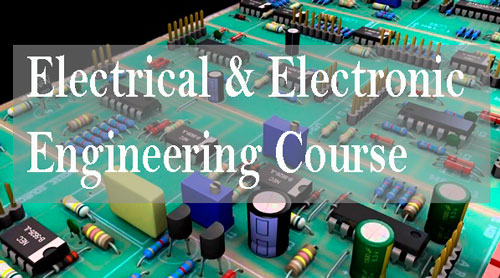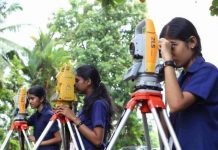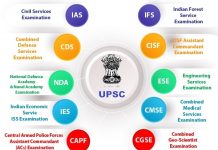About BE EEE COURSE :

BE EEE courses involves the learning of fundamental concepts related to Electronics and Electrical and application of electrical systems for their use in various environments as well as basic electronic courses also. The program mainly aimed towards imparting knowledge of basic concepts and making the students livelier, conscious, and professionally more involved in the field of electronics and electrical industry. This is the ideal program for students those who are interested in a career as Electrical engineers in the Electrical and Electronic field or keen to attain knowledge, study and be relevant to the concepts of electrical and electronics engineering to crack industry-related problems and issues. In order to enter in this sort of profession, interested candidate requires BE in EEE.
Electrical and Electronics Engineering (EEE) is a very significant subject that is associated to engineering. This is perhaps the most closely controlled field in the field of engineering; thus pursuing EEE can be a slight challenging. As the full form states, the concerned candidate will have to pact with electrical and electronics engineering.
To be an expert in this field, one must know all about the crucial aspects of this field. Such as, understanding the circuits and mechanized devices in EEE field should be your highest priority.
BE EEE, the courses consist with different but real-time problems associated with theoretical learning and practical control and operation of power systems and electrical as well as electronic machines and objects.
Also read : Polytechnic paper
BE EEE: Main Highlights
| Course Level | Undergraduate (UG) Level |
| Course Duration | 4 Years |
| Program Type | Full-Time/ Part-Time |
| Type of Examination | Semester System |
| Eligibility Criteria | 12 Pass with at least 45% to 50% marks |
| Admission Process | Either Merit-based or Entrance-Based |
| Fee Structure | INR 3-10 LPA |
| Average Starting Salary | INR 55,500-7,50,000 |
| Recruiting Companies/Organizations | Wipro Lighting Corporate, Eveready Industries India Ltd, Jindal Steel & Power Ltd., ISRO, JTO, NTPC, Exide Industries Ltd, Bajaj Electricals Ltd, Tata Electric Companies, Adani Power Ltd, PTC India Ltd., Bharat Heavy Electrical Ltd, Schneider Electric, EMCO limited, Havel’s India Limited, , Jindal Steel & Power Ltd., Advance Engineering Company, , Finolex Cables Limited |
| Job Positions | CAD technician, Electrical engineer, Control and instrumentation engineer, Design engineer, Electronics Engineer, Aerospace engineer, Research Engineer, Broadcast engineer, Graduate Engineer Trainee, etc. |
BE EEE: Admission Process
BE Electrical and Electronics Engineering Admission EEE procedure is done through:
- Merit-based or
- Entrance-based
Some of the institutes might bear several other rounds which includes interviews and group discussions.
Merit-Based Admissions in BE EEE:
The candidates can concern to the colleges providing admission in B.E. Electrical and Electronics Engineering EEE, through both online and offline mode. You are required to follow the following instructions while applying for the M. Com (PG) in Banking and Financing course:
- The candidates ought to visit either the official website of the college for the online application form OR the college campus for the B.E. Electrical and Electronics Engineering EEE admission application forms.
- He/she must fill the application form as per the given instructions and upload (if online) or submit (offline) the required attested documents and photocopies in the set dimensions.
- After the final processing of application form, the concluding list of the selected candidates/merit list is free after other admission rounds such as Group Discussions (GD) and Personal Interview (PI) (if any).
Entrance-Exam Based Admissions in BE EEE:
- Candidates will be requisite to be seated for the entrance exam.
- Candidates must be accompanied with the compulsory documents and essentials as prescribed or instructed.
- Candidate qualifies for the entrance exam after getting a valid score.
- Selected students are invited for the counseling round, Personal Interview Round, or Group Discussions (if any).
BE EEE: Eligibility Criteria
The basic BE EEE Criteria is given below:
- The interested candidates must have completed their class 12th class with Science stream with a minimum aggregate of at least 45% to 50% marks from any renowned Board.
- Few of the colleges might also consider the individual score in each subject and some colleges might judge on the basis of score attained by the candidate in the entrance exam.
BE EEE: Entrance Exams
The candidates who get qualified in the entrance exam with a good score are chosen for other rounds that includes Personal Interview (PI) or Group Discussions (GD):
| Name of Exams | Last to Date to Apply | Date of examination |
| BITSAT 2021 | May 29, 2021 | June 24-30, 2021 |
| MHTCET | To be announced | To be announced |
| VITEEE | March 30, 2021 | 2nd or 3rd week of April 2021 |
| COMEDK | To be announced | June 20, 2021 |
| SRMJEEE | March 31, 2021 | 1st or 2nd week of April 2021 |
| AP EAMCET | To be announced | To be announced |
BE EEE COURSE: How to Prepare for Entrance Exams?
Candidates who all are preparing for BE EEE must keep informed themselves with the syllabus, pattern of exam. Given below are the steps that must be taken care of before the exam –
- Candidate must daily practice previous year question papers.
- Firstly cover the entire syllabus and once your weak points get identified, work on them.
- Make revision notes for a quick revision.
- NCERT syllabus of class 12th of particular subjects must also be revised properly and carefully.
Why to Study BE EEE COURSE?
Students with huge interest must opt for this course. This course is one of the most selected engineering disciplines because –
- It is anxious with the learning and application, and designing of electrical and electronic devices.
- This course is also chosen by the students with a high caliber in Math and Physics.
- This course provide better and more job opportunities out of the many other engineering fields
Course Comparison
BE EEE and BE ECE have the study of Electronics in common but the differences are given below briefly:
| Parameters | BE Electrical and Electronic Engineering (EEE) | BE Electronics and Communication Engineering (ECE) |
| Objectives | Concepts associated to Electronics and Electrical and application of electrical systems for make use of in different environments as well as basic electronic courses | Concepts associated to electronics related more with communication and scientific learning of the behavior and effect of the electrons. |
| Average Annual Fees | INR 1 to 4 LPA | INR 1 to 4.5 LPA |
| Duration of course | 4 Years | 4 years |
| Eligibility criteria | Minimum 50% marks in 12th class in any related stream. | Minimum 50% marks in 12 in any related stream with Physics, Mathematics, and Chemistry (PCM) as the key subjects. |
| Admission Process | Merit-Based or Entrance-Exam Based | Merit-Based or Entrance-Exam Based |
| Average Annual Salary | INR 3 to 10.5 LPA | INR 2 to 8 LPA |
Top Colleges
Given below are the top colleges for the BE EEE course for the year 2021:
| Institutes/Colleges | Fee Structure | Avg. Placement |
| BITS Pilani- Hyderabad Campus, Hyderabad | INR 18,62,650 | INR 12-15 LPA |
| Punjab University | INR 96,500 | INR 5-10 LPA |
| Indian Institute of Technology | INR 8 LPA | INR 20-30 LPA |
| RV College of Engineering, Bangalore | INR 2,35,225 | INR 8-10 LPA |
| Bangalore Institute of Technology, Bangalore | INR 2,37,224 | INR 6-8 LPA |
| Chaitanya Bharathi Institute of Technology, Hyderabad | INR 380,500 | INR 6-10 LPA |
| Chandigarh University, Chandigarh | INR 4,80,500 | INR 10-15 LPA |
Syllabus for BE EEE COURSE:
Given below is the BE Electrical and Engineering course syllabus:
| Semester I | Semester II |
| Applied Mathematics ( I) | Applied Mathematics (II) |
| Applied Physics( I) | Applied Physics (II) |
| Applied Chemistry (I) | Applied Chemistry (II) |
| Manufacturing Process | Introduction to Programming |
| Introduction to Computers and Auto cad | Engineering Mechanics |
| Communication Skills(I) | Electrical Science |
| Impact of Science & Technology on Society | Communication Skills (II) |
| Semester III | Semester IV |
| Applied Mathematics (III) | Electro Mechanical Energy Conversion (II) |
| Analog Electronics(I) | Analog Electronic (II) |
| Circuits & Systems | Power System (I) |
| Electrical Engineering Materials | Control Engineering (I) |
| Electro Mechanical Energy Conversion (I) | Electromagnetic Field Theory |
| Data Structures | Power Station Practice |
| Semester V | Semester VI |
| Digital Electronics | Microprocessor |
| Object Oriented Programming using C++ | Power System (II) |
| Communication Systems & Circuits | Power Electronics |
| Electrical Measurement & Instrumentation | Digital Signal Processing |
| Database Management Systems | Utilization of Electrical Energy |
| Organizational Behavior | VLSI Design & its Applications |
| Semester VII | Semester VIII |
| Electrical Drives | Advanced Control Systems |
| HVDC Transmission | Flexible A.C. Transmission Systems |
| Electives | Electives |
BE EEE COURSE: Job Profiles
| Job Position | Responsibility | Average Salary |
| Aerospace Engineer | This position is primarily accountable to design satellites, aircraft, spacecraft, and missiles | INR 2-3.5 LPA |
| Manager | This position is accountable for all the job work setting up and management | INR 7-8.5 LPA |
| Sales Engineer | This position is accountable for knowledge of different products’ parts and functions. | INR 3,05,390 |
| Electrical and Electronics Installers and Repairers | This position is accountable to install or repair a variety of electrical and electronic equipment in, transportation, utilities, telecommunications, and other industries/companies. | INR 1.5 LPA |
| HR Manager | This position is to administer all the human resources and schedule the job and location for an organization or company | INR 5-6 LPA |
| Research Engineer | This position is accountable for the research project in a particular domain of the organization | INR 4-5.5 LPA |
| Engineering Managers | This position is accountable to plan, coordinate, direct activities in architectural and engineering companies or organizations. | INR 31 LPA |
| Purchase Manager | This position is accountable for buying and selling the components for the organization/company | INR 4-5.5 LPA |
| Graduate engineer trainee | This position works on all the errands assigned by the company or the organization | INR 2-5 LPA |
Future Scope
Any student who has completed B.E. Electrical and Electronics Engineering is qualified for further studies like PG. Placements in government or private sector jobs as well as in MNCs (Software) and other related industries are available.
- Candidate can sit for a variety of job positions in different Electrical and electronics industries and companies.
- Candidate can go with the PG program like Masters of Technology in Electrical and Electronics Engineering (M.TECH. EEE) or Master of Engineering in Electrical and Electronics Engineering (M.E. EEE) or MBA or a Ph.D. further to grab a better hold in the field.
For more information visit : Education In India






































[…] Also read : BE EEE Course […]